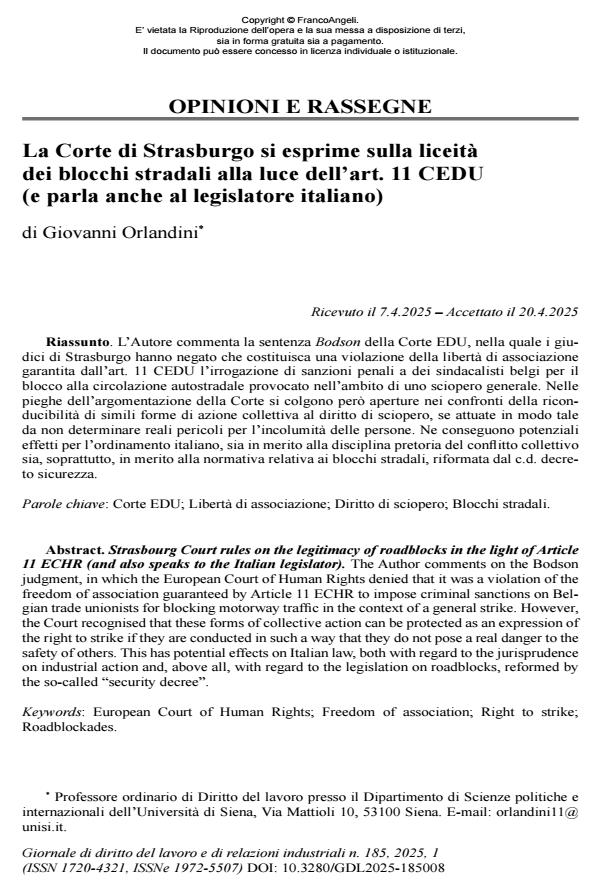Strasbourg Court rules on the legitimacy of roadblocks in the light of Article 11 ECHR (and also speaks to the Italian legislator).
Journal title GIORNALE DI DIRITTO DEL LAVORO E DI RELAZIONI INDUSTRIALI
Author/s Giovanni Orlandini
Publishing Year 2025 Issue 2025/185
Language Italian Pages 12 P. 143-154 File size 167 KB
DOI 10.3280/GDL2025-185008
DOI is like a bar code for intellectual property: to have more infomation
click here
Below, you can see the article first page
If you want to buy this article in PDF format, you can do it, following the instructions to buy download credits

FrancoAngeli is member of Publishers International Linking Association, Inc (PILA), a not-for-profit association which run the CrossRef service enabling links to and from online scholarly content.
The Author comments on the Bodson judgment, in which the European Court of Human Rights denied that it was a violation of the freedom of association guaranteed by Article 11 ECHR to impose criminal sanctions on Belgian trade unionists for blocking motorway traffic in the context of a general strike. However, the Court recognised that these forms of collective action can be protected as an expression of the right to strike if they are conducted in such a way that they do not pose a real danger to the safety of others. This has potential effects on Italian law, both with regard to the jurisprudence on industrial action and, above all, with regard to the legislation on roadblocks, reformed by the so-called “security decree”.
Keywords: European Court of Human Rights; Freedom of association; Right to strike; Roadblockades.
Giovanni Orlandini, La Corte di Strasburgo si esprime sulla liceità dei blocchi stradali alla luce dell’art. 11 CEDU (e parla anche al legislatore italiano) in "GIORNALE DI DIRITTO DEL LAVORO E DI RELAZIONI INDUSTRIALI " 185/2025, pp 143-154, DOI: 10.3280/GDL2025-185008